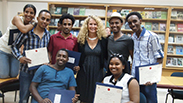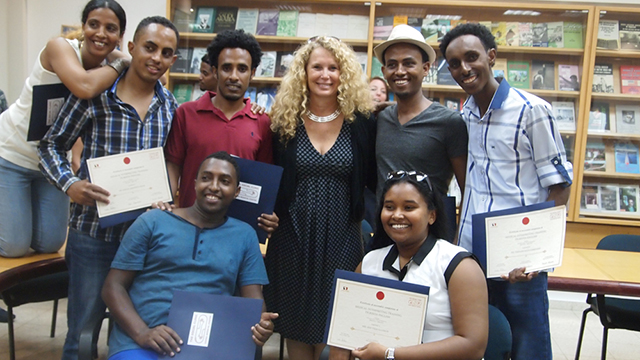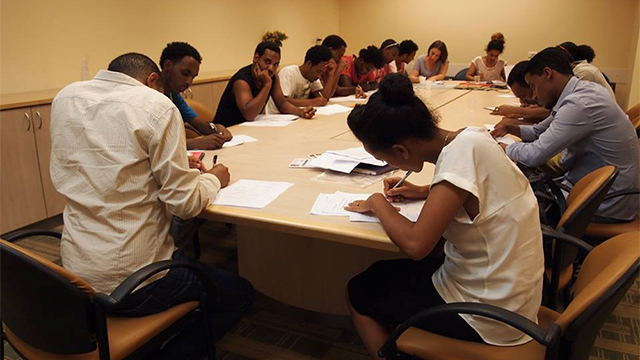
Asylum seekers join healthcare system to help fellow countrymen
Group of Eritreans refugees join medical system as translators after undergoing specialized course: 'Out premise was that the more the communication improves, the better the medical service becomes,' doctor says.
A group of Eritrean asylum have begun to take an active role in aiding their fellow countrymen navigate Israel's health system.
After eighteen asylum seekers from Eritrea successfully completed a medical interpreting course, eight of the course's participants have been integrated into the healthcare system.
The course participants covered various principles behind medical translation from English to the Tigrinya language, and dealt with, among other topics, the human body, and fundamental issues in the world of medicine and in doctor-patient communication.
"There are many refugees who can't explain to doctors what happened to them and where they are hurting because they don't know the language. Now I can help them," said Daniel, one of the course graduates who has been in Israel for the past two years and eight months, and has recently began to work as a translator at the Chaim Sheba Medical Center at Tel Hashomer.
"It's a tough job because you see a lot of patients in serious condition, but I am able to help them and that's what matters most."
According to Prof. Galia Sabar, who teaches African Studies at Tel Aviv University, "the idea for the course came after many reports of complex difficulties experienced by doctors, nurses and health professionals who attempted to understand the medical hardships experienced by almost 50,000 Eritrean asylum seekers. Our premise was that the more the communication improves, the better the medical service becomes."
The course was four months long, and was launched at the initiative of Dr. Shiri Tenenbaum, a medical resident at the Chaim Sheba Medical Center at Tel Hashomer and Dr. Michal Schuster, an expert in the training of medical interpreters.
"Beyond the professional training the course participants gained, the course created a system of empowerment for asylum seekers, who are at a disadvantaged and problematic position," Sabar added.
"The course has been supported by the UN Refugee Agency and has provided the participants with vocational training they can use anywhere in the world. This a tremendous starting point for a better future in other places."












